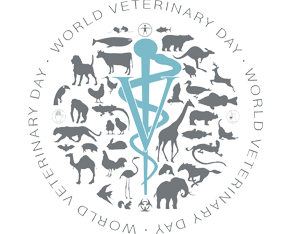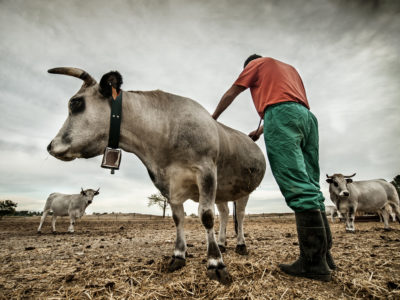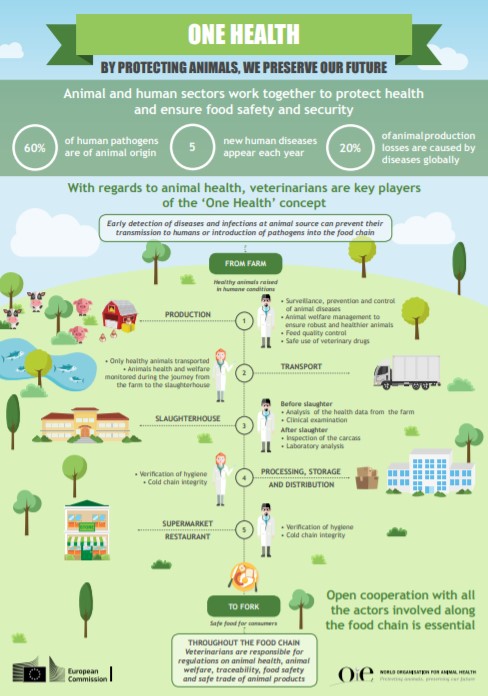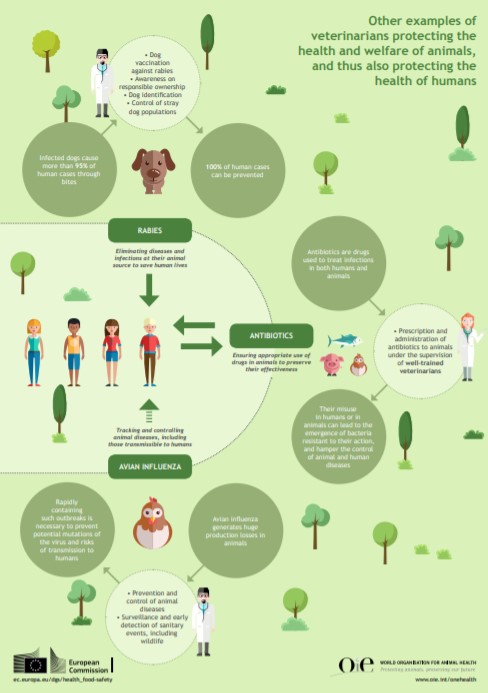
Beyond merely protecting animal health, veterinarians are at the heart of the relationship between people and animals, which is so vital for all our futures – not only for our health but also for our social and environmental well-being.
One Health OIE EU
In this era of globalisation, the emergence and re-emergence of unforeseen health crises is accelerating. It is estimated that five new infectious human diseases appear each year, three of which are zoonotic. The recent Ebola epidemic, as well as the appalling number of human deaths caused by rabies each year, is a remorseless reminder of the strong links between human health, animal health and the environment, and thus the need to adopt cross-sector approaches, as illustrated by the ‘One Health’ concept.
In protecting the health and welfare of animals, veterinarians contribute to the protecting the health of humans.
One Health OIE EU
All countries depend on the performance of their national Veterinary Services, in their public and private components, not only to successfully control these diseases but also to tackle food safety issues, and to effectively control and prevent any biological disasters. Therefore, veterinarians should be well trained to meet the challenges of tomorrow’s public health arena.
The early detection of infection and disease at their animal source can prevent their transmission to humans. Veterinarians have, for instance, a central role in the food chain, from farm to fork.
Download these infographics here.
Veterinary education is a subject that is cherished by the OIE, which is organising its Fourth Global Conference on the subject in June, with the goal of raising standards for the veterinary profession all over the world.
This award is presented to the best contribution from the veterinary profession on the World Veterinary Day theme, at the Opening Ceremony of the 84th General Session of the OIE, which will be held in Paris (France) on 22 May 2016.



